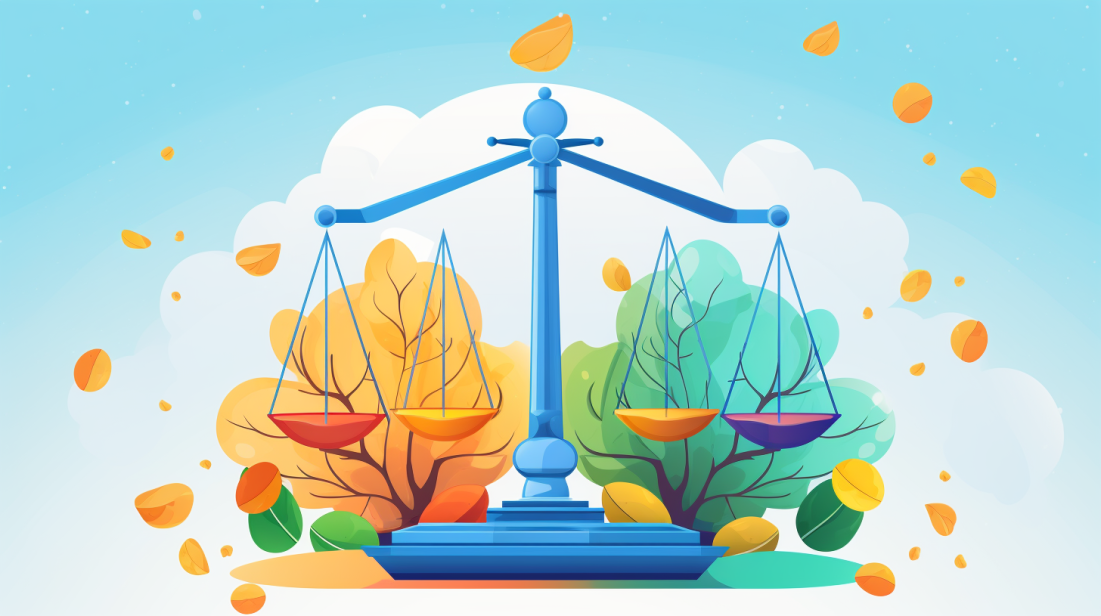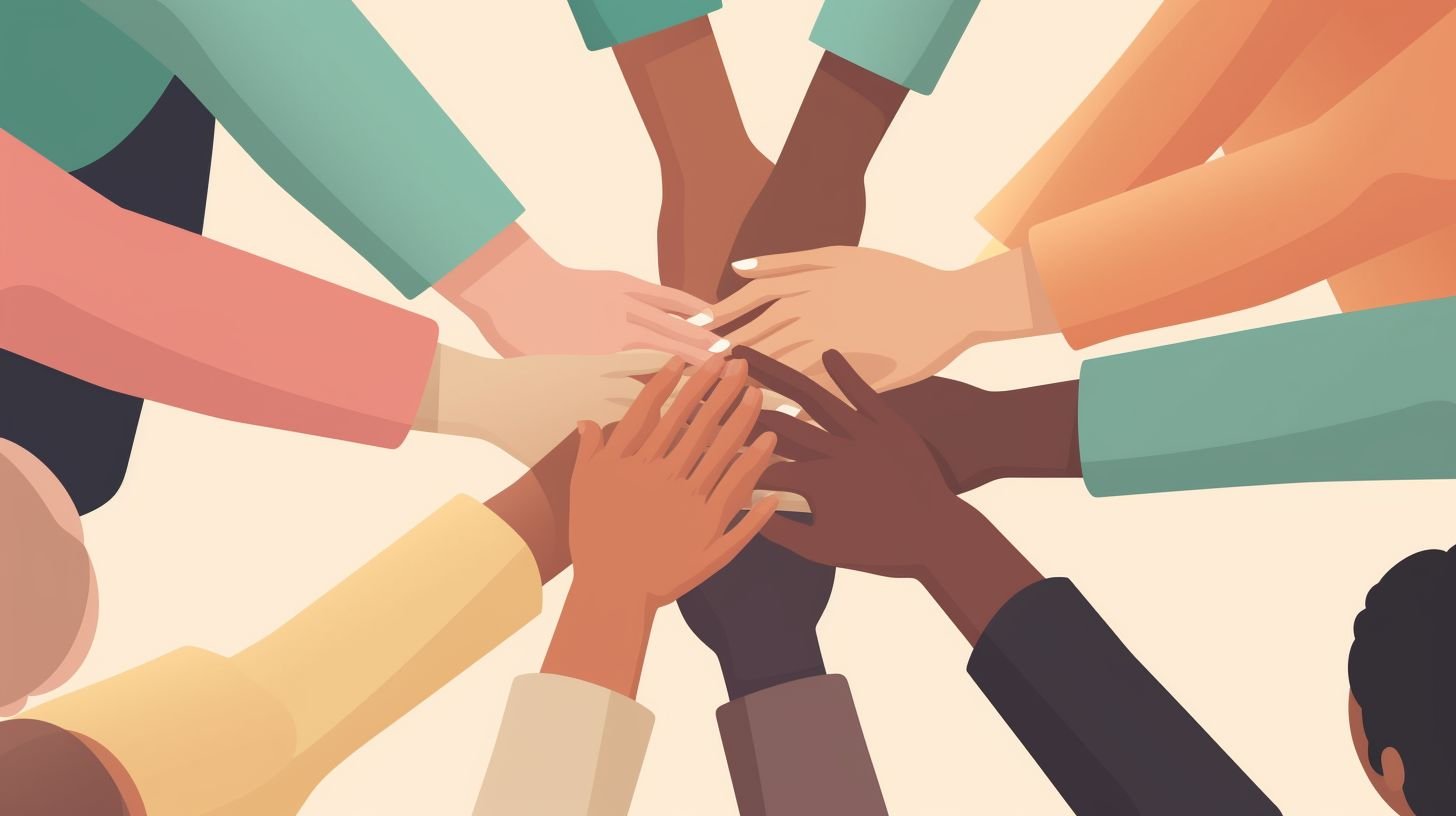Are Debt Relief Programs a Scam or Worth It?

Are you feeling the heavy burden of debt, questioning the real value of debt relief programs? Just like you, I once found myself swimming in a sea of bills, desperately seeking a life raft.
After delving deep into research and personal exploration, I’ve managed to gather essential insights that can aid us in determining whether these programs are fraudulent traps or beacon lights of hope.
Brace yourself; it’s time we unravel the complex maze that is debt relief!
Key Takeaways
- Debt relief programs help people fight big debts. They talk to creditors and try for a lesser payback.
- Some debt relief companies are scams. Be careful if they ask for money first or promise fast results.
- Debt relief can hurt your credit score and make you owe taxes. This is because the IRS sees any forgiven or canceled debt as income.
- There are different ways to handle debt, like settling it yourself or through credit counseling services. Think about all options before choosing a relief program.
Understanding Debt Relief Programs
Debt relief programs offer a way out for those drowning in financial difficulty, allowing them to eliminate or reduce their debt. These are often services provided by companies that negotiate with creditors on your behalf for a partial payment of your original debt.
There are different types of such programs including debt consolidation, credit counseling, debt management, debt settlement and even total forgiveness. Understanding each type will help you make an informed choice about what’s best for your situation.
How Debt Relief Companies Work
Debt relief companies help people who have too much debt. They talk to those you owe money to and try to make a deal. The plan is simple. You stop paying your bills for now. Instead, you pay into a special savings account every month.
This account is set up by the debt relief company just for this job.
After some time, the savings account has enough money in it for a deal. The debt relief company goes back to the people you owe money to and makes an offer. They say, “Take this smaller amount of money now or risk getting nothing if he/she declares bankruptcy.”.
If they agree, your debts are gone but there’s a cost! Debt settlement companies take 15% to 25% of what was owed as their payment – that’s how they earn their keep! Plus, other fees may wait around the corner like setup costs or monthly charges on the savings account.
Settling debts can also leave marks on your credit report that stick around for up to seven years after everything settles down.
Types of Debt Relief: Debt Consolidation, Credit Counseling, Debt Management, Debt Settlement, Debt Forgiveness
Let’s explore the five types of debt relief programs. These programs help people in financial difficulty regain control of their money.
- Debt Consolidation: This is a way to make one loan from many debts. The new loan has a lower interest rate than the old ones. Now, there is only one monthly payment instead of several.
- Credit Counseling: In this program, you work with a professional. They help you make a budget and a plan to pay back your debts.
- Debt Management: This program lowers your interest rates. It also creates a plan for you to pay back your creditors over time.
- Debt Settlement: You can negotiate with creditors for a partial payment on debts in this option. Instead of paying the full amount, you only pay part of it as a lump sum.
- Debt Forgiveness: Some types of debt may be erased entirely through these programs. For example, certain student loans may be forgiven if you meet specific conditions.
The Legitimacy of Debt Relief Companies

While there are many legitimate debt relief companies offering genuine solutions for those grappling with mounting debts, sadly, the industry also has its share of scams.
Signs of Debt Relief Scams
Scams can be a part of debt relief programs. Here are some signs of these scams:
- The program asks for money upfront. This is not allowed and it’s a big red flag.
- You get a cold call about the program. Scams often start this way.
- They promise or say they can get certain results. Nobody can make that promise.
- They tell you to stop talking to your creditors and don’t explain what might happen if you do that.
- They talk about “new government programs” or ways to play the system. These are usually lies.
- They ask for your bank details or payment info before they explain what they do.
The Implications of Debt Relief Programs
Unraveling the potential implications of debt relief programs is imperative, as it includes understanding different aspects like scams, fluctuating interest rates, fees charged, tax consequences and the impact on your credit score.
Let’s dig deeper to comprehend these crucial factors that affect decision-making when considering any form of debt relief.
Scams
Be careful. Some debt relief companies are not honest. They may want you to pay money upfront before they help you. This is a sign of a scam. Also, be wary if someone cold-calls you to offer fast results for your debt problems.
Scammers use tricks like promising “new government programs” or special ways around the law. They might say that they can end all calls from debt collectors just by telling them to stop without explaining what will happen next.
Don’t believe this! Stopping communication with creditors can make things worse, not better.
By knowing how scams work and being alert, you can keep your money safe while working on managing your debts.
Interest Rates

Interest rates are a big part of debt relief programs. High rates can make the cost of repaying your debt even bigger. It also makes it take longer to pay off. But, some debt relief companies might help you get lower rates from the people you owe money to.
Lower rates can save you money in the long run and let you pay off your debts faster. But be careful! Not all companies can do this for all the types of money that you owe. Don’t forget to check whether they can help with your type of debt before signing up with them.
Fees
Fees can be a big part of debt relief programs. Some companies may keep 15% to 25% of your total debt as their pay. This is a lot! It’s important to know about all the fees before you pick a company.
Not all companies ask for money upfront. If they do, that could be a sign of a scam. The Better Business Bureau says real companies should not want cash before giving help.
Tax implications
You may have to pay tax on the money you save from a debt relief program. This is because the IRS sees forgiven or canceled debt as income. The company that forgave your debt will send you a Form 1099-C, Cancellation of Debt.
You use this form to report your “income” on your federal income tax bill. However, some kinds of debt relief may not count as taxable income. It’s smart to talk with someone who knows about taxes before joining any program.
Be careful! Some scams say they can get rid of this tax rule but they can’t make promises like this. You should always think about potential tax effects when looking at debt relief options.
Impact on Credit Score
Debt relief programs can dent your credit score. The process of settling debts often leads to late or missed payments. Each miss is a mark against you on your credit report. These marks stay for up to seven years, as told by the Federal Consumer Financial Protection Bureau.
Not all creditors agree to settle debts with these companies though. So, some debt might still linger and keep pulling down your scores.
Evaluating the Worth of Debt Relief Programs

Deciphering the value of debt relief programs involves a careful examination of their pros, cons and what to consider prior to engaging one. Stay tuned as we unearth these details for your financial well-being.
Pros and Cons
Debt relief programs can be a life-saver for individuals drowning in debt, but they also have their drawbacks. Let’s take a closer look at the pros and cons.
| Pros | Cons |
|---|---|
| Debt relief companies negotiate with creditors on your behalf. This can result in you having to pay only a fraction of your original debt, typically between 40-80%. | Not all creditors may agree to negotiate settlements. The Consumer Financial Protection Bureau warns individuals to be aware of this. |
| These companies offer expertise and knowledge in the complex world of debt management, which can be a relief if you’re feeling overwhelmed. | Debt settlement companies aren’t free. They typically keep 15-25% of the total debt amount as payment for their services. |
| Enrolling in a debt relief program can offer a sense of control and structure, as you’ll be making regular payments into a savings account. | These programs advise you to stop paying your debts, which can lead to even higher interest rates and late fees. |
| With successful negotiations, you could become debt-free in a shorter amount of time. | Debt settlement can leave a negative mark on your credit reports for up to seven years. |
| In some cases, debt relief programs may be the only viable option to avoid bankruptcy. | There are often additional hidden fees, such as charges for setting up and maintaining the savings account. |
As you can see, debt relief programs have both benefits and disadvantages. It’s essential to understand both sides before deciding whether this route is the best solution for your financial situation. Consider carefully, do your research, and seek professional advice if necessary.
Considerations Before Applying for Debt Relief
Before jumping into a debt relief plan, there are key things to think about.
- Know your debt: You need to know how much you owe and who you owe it to. Make a list of all your debts.
- Check your credit score: A debt relief plan may harm your credit score. Make sure you know where you stand before starting.
- Understand the cost: Debt relief companies often take a share of your total debt as a fee. Know the cost upfront.
- Be ready to save money: Debt relief firms will tell you to stop paying your debts and start saving cash. You must be able to do this for the plan to work.
- Think about tax implications: After successful talks, a part of your original debt may be paid back. This part could count as income on your tax bill.
- Expect impact on credit reports: Paying fewer debts can hurt your credit report.
- Seek advice from professionals: Talk with trusted experts or consult reputable sources online for advice about debt relief programs.
- Explore other options: Remember, debt relief might not be the only solution for managing your finances in a better way.
Alternatives to Debt Relief Companies

While debt relief programs might seem like the only route, there are alternatives worth exploring. You could decide to tackle settling your debts independently or work with a non-profit credit counseling service, both offering unique benefits.
Curious how these options stack up against debt relief companies? Read on to find out more!
Tackling Debt Settlement Independently
Tackling debt all alone is not a bad idea. It can be tough but you can do it.
- Look at how much money you owe. Write it down.
- Come up with a plan. This could be paying off small debts first or ones with high interest.
- Reach out to your creditors. Ask them if they will lower your payments or interest rates.
- Stick to your plan and make payments on time, every time.
- Don’t add more debt while trying to pay off old ones.
Using a Non-profit Credit Counseling Service
You can turn to a non-profit credit counseling service when in financial hot water.
- These services offer help if you are having money troubles.
- They have people who look at your debts and money issues.
- You can learn about all the ways you can deal with debt, like using debt settlement services.
- Non – profit credit counselors are there to guide you on how to make a budget and manage your money.
- They also teach you how to control your debt.
- There are many resources they give you like articles, videos, online classes, webinars, worksheets, and podcasts.
- You can get help from them online or by phone no matter where you live in the United States.
- Some places even let you talk to them face-to-face.
- Sometimes the answer might be a loan that puts all your debts together or a plan on how to manage your debt. These counselors tell you when that is a good idea.
Conclusion
Debt relief programs can be good for some. But, they may hurt more than they help. We must know the risks before we choose this path. So, always think hard and ask questions before you join a debt relief program.






